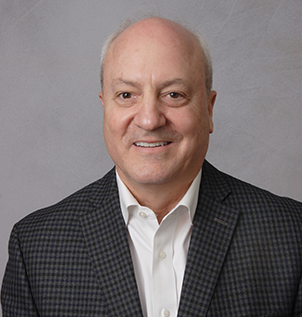It is no secret that health care costs are shockingly expensive. Therefore, it is so important to discover what health care programs are available to help cover some or all of the costs especially for the senior population. Making sense of healthcare information and the different programs available to help pay for care has become increasingly complex over the years. We are writing this article with the goal of debunking misconceptions about Medicaid and Medicare, which are two of the most important programs available for helping people pay for the health care services they need.
Get the Help You Need to Solve the Long Term Care Puzzle
When it becomes necessary to find long-term care services for an elderly family member it can be overwhelming due to the number of programs and the complexity of determining eligibility requirements for each program. At Senior Solutions Consulting, our mission is to find the benefit program(s) that are the most beneficial to our clients and their families. Please call us at 317 863-0213 to schedule a time to get answers to all of your care questions and concerns.
Misconception #1: Medicare and Medicaid are the Same Thing
One of the biggest challenges is understanding the difference between Medicare and Medicaid. The names are similar and they are both programs that help pay for care for older citizens. Medicare is age-based health coverage while Medicaid is need based assistance for care services. Every citizen of the U.S. becomes eligible for Medicare when they turn 65 (some younger people with specific conditions are also eligible). Medicaid eligibility is based on income and asset guidelines.
Misconception #2: You Can’t Qualify for Both Medicare and Medicaid
Many times people think that they can only be on one or the other program at a time. Once you are on Medicare, if you need Medicaid you will not lose your Medicare benefits. If you are on both programs you are deemed to be “dual eligible”. The usual order of care/payments is Medicare then your supplemental health insurance then Medicaid. None of these programs are associated with the Affordable Care Act or Obamacare.
Misconception #3: Medicare and Medicaid are Both Federal Programs
This is not true, and it’s important to understand why. Medicare for seniors is both funded and administered by the federal government, so it is truly a program of the federal government. Medicaid, on the other hand, is a state program that receives part of its funding from the federal government. In other words, although the federal government may provide a substantial amount of money for Medicaid, it is administered by each state. The reason this is important is that the rules for Medicaid are different in every state. In order for those states to receive federal funding for their Medicaid programs, they must meet certain requirements spelled out by the federal government, but past that rule changes are made by each state as they see fit. When you want to know about Medicaid benefits for aging loved ones, you want to work with an expert who knows how it works in your specific state.
Misconception #4: Medicare Pays for Long Term Care
There are many misconceptions about what and how much Medicare covers. Some think it will pay for everything and won’t cost them anything. It would be nice if this were true, but it’s not. Medicare covers a lot, but not everything and most seniors enrolled in Medicare will have to pay deductibles and co-pays. Medicare does not pay for long-term care except when it’s needed as a temporary transition after a hospital stay before returning home or to an assisted living facility. In other words, Medicare will cover some of the costs for temporary rehabilitative care in a nursing home or other skilled nursing facility.
Misconception #5: Medicaid is Only for Poor People
While there are income and asset eligibility criteria, Medicaid is available to all citizens. Medical expenses can build up quickly and wipe out a lifetime of savings in a short amount of time. Medicaid helps pay for long term care stays, assisted living, and even home care. Please do not disqualify yourself without speaking to us first. Learn more in our article, What is Medicaid?
Misconception #6: Medicaid Doesn’t Pay for In-Home Senior Care
Most people know that Medicaid will pay for nursing home care for an elderly loved one. Many think if their senior family member doesn’t need nursing home care, then they’re out of luck because they assume Medicaid doesn’t pay for assisted living or in-home care services. But Medicaid can be used to pay a good portion of those expenses through the Medicaid Waiver program. Applying for the Medicaid Waiver program can be complex, along with ensuring eligibility, which is why working with a benefits expert who knows how these programs work in your state can be invaluable. Learn more in our article, What is Medicaid Waiver?
Misconception #7: Medicare Supplemental Insurance Enrollment is Automatic
While any U.S. citizen who reaches age 65 is automatically eligible for Medicare, enrollment is not automatic! You have to specifically go through an enrollment process before you can start gaining the benefits of the program. The basic enrollment period has to do with your birthday. You can enroll in Medicare over a seven-month period that includes the three months before your birthday month, your birthday month of turning 65, and three months after your birthday month. If you don’t enroll during that time, there is also an open enrollment period each year that runs from January 1 through March 31.
Senior Solutions Consulting: Your Long Term Care Planning Partner
These are just seven of the most common misconceptions about Medicare and Medicaid. There are many more, which is why many people realize they need someone they can trust to help them navigate information about these programs, including complex rules around eligibility and applying for benefits. It’s what we do at Senior Solutions Consulting to help your family make the best decisions possible about long-term care for aging loved ones, including how to pay for it. Call us at 317-863-0213 to start a conversation about your needs, how we can help, and schedule an initial free consultation to learn more.



